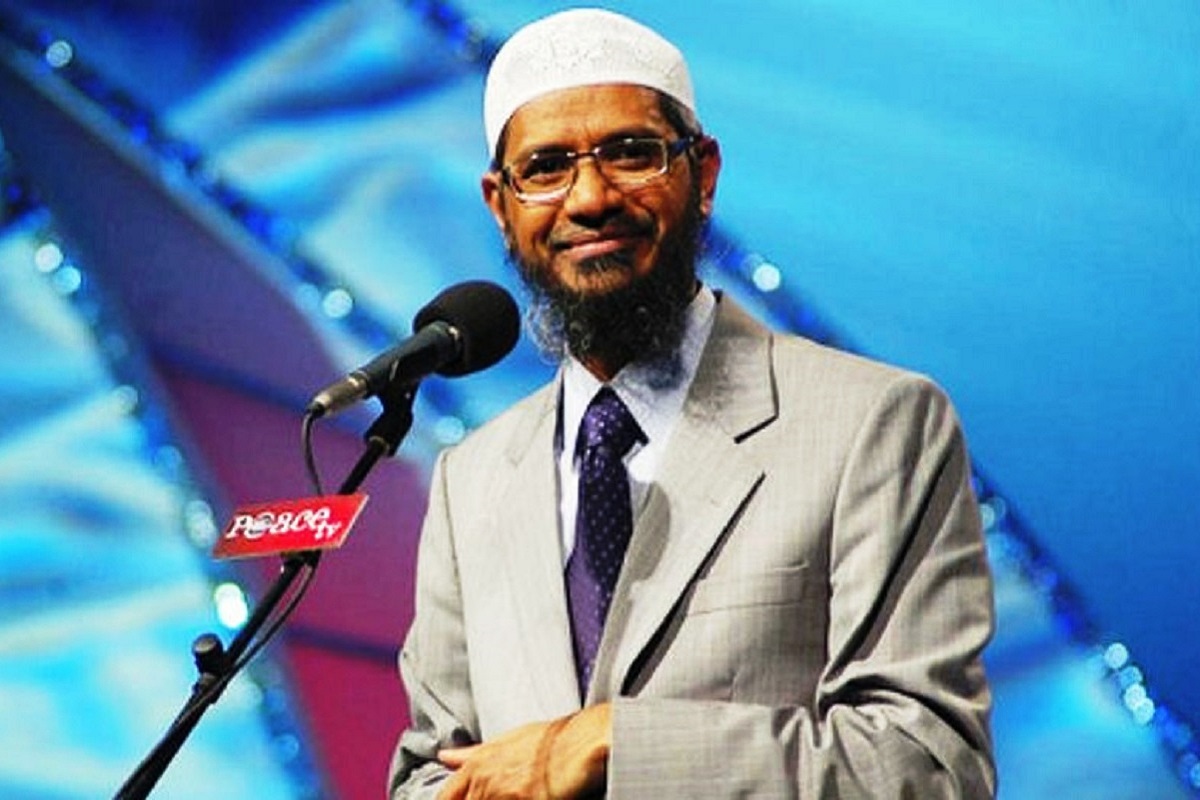Zakir Naik, the controversial Indian Islamic televangelist and the founder and president of the Islamic Research Foundation (IRF), on Tuesday, expressed his willingness to return to India if the Supreme Court gave him in writing that he will not be arrested and jailed till he is actually convicted.
Naik, who is also the founder of the Peace TV channel, said in a statement that while he has trust in the Indian judiciary, he had no faith in the prosecution system.
Advertisement
“Despite allegations and complaints, there is not a single verdict against me in any court anywhere in India or the world. The recent history of India is replete with cases of Muslims being arrested and put in jail for eight-20 years before being declared innocent by the court. Knowing this record of the Indian agencies, I would not like to take chance of ruining my life and my unfinished work,” said Naik.
Zakir Naik had reportedly left India in 2016 and moved to Malaysia where he was granted permanent residency. He was booked by the Enforcement Directorate (ED) in 2016 based on a National Investigation Agency (NIA) FIR that was registered under the Unlawful Activities Prevention Act.
He was responding to the latest developments in India where the ED has charged him with a Rs 193 crore money-laundering case and is planning to get a non-bailable arrest warrant issued by a Mumbai court. If the warrant is issued, the ED will send a petition to the InterPol seeking a red corner notice (RCN) to all member-countries, including Malaysia, demanding he is extradited to India as per the extradition treaty between the two nations.
Malaysian Prime Minister Mahathir Mohamad, on Monday, had said that his country has a right not to extradite Zakir Naik if he is not going to get a free trial in India.
“I want to hasten up clearing my name from fictitious charges by the Indian agencies, they continue an exercise steeped in injustice and unfairness and are trying to put in jail irrespective of whether I am guilty or not, without trial and without hearing,” Naik alleged.
Accusing Indian agencies of “trying to pin something, some charges, any charges” on him, he pointed out that when the terror charges did not work with InterPol, they moved to money-laundering, but the InterPol refused to accept India’s charges against him twice in two years.
Despite pressures from India, the InterPol has not issued an RCN, and now the agencies are trying their luck with money-laundering to get them to comply, Naik added.
He said the Indian agencies even tried to attach his legally-acquired properties, but on two occasions — in early-2018 and in March 2019 — the Appellate Tribunal stayed their actions as they (the Indian agencies) could not prove that the properties were acquired illegally.
“Any rational mind will see that the Indian agencies are not being driven by their duty of solving a crime but by the will of their political bosses. Fortunately for me, Interpol is not driven by Indian politics. Somehow they are not convinced about my ‘crime’ the way Indian agencies have been claiming,” said Naik.
He reiterated that he has offered several times to meet any agency officials in Malaysia, these were spurned as they were not interested in giving a hearing or a fair trial, “but put me behind bars… no charges, no trial, no investigations… looks like my punishment has already been decided.”
Under the circumstances, he sought the Supreme Court’s protection in writing after which he was prepared to return to India immediately.
In December 2017, the Interpol had refused to issue a red corner notice (RCN) against Naik and has ordered its global offices to delete all the data on him, said the media reports.
In July 2018, Zakir Naik had said he would not return to India until he feels “safe from unfair prosecution”.
(With agency inputs)









